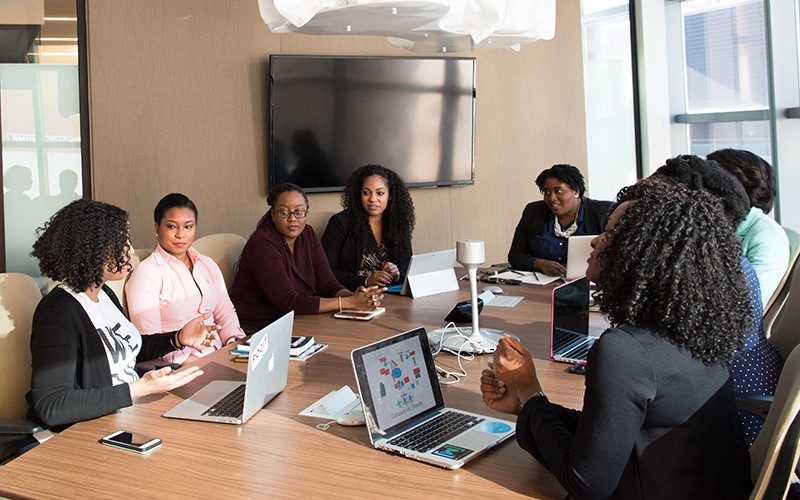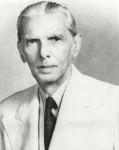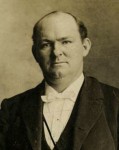The Millennium of Women
Article published in the GOOD WILL Women magazine forwarded to the United Nations in March 2011.
In fair tribute to the human being who, among many other virtues, carries the gift of bringing us to life, I selected some excerpts from my book O Capital de Deus (The Capital of God), by Elevação Publishing House. Before transcribing them, I would like to highlight the fact that there are many ways of being a mother, as I pointed out in the Correio Braziliense newspaper, in 1987: even when not born of the flesh, other sublime ways in which a woman can be a mother includes bringing to life great achievements in favor of Humanity. I hope you enjoy it.

For transcendental matters, the feminine sensitivity is also quite remarkable. With my eyes set on the outlook of the years to come, in which, by force of the instinct to survive, the consciousness of people may be more prone to everything related to moral and spiritual ascension, I invited — on the several occasions in which I spoke to the crowd on those two days at the Temple of Good Will, at the headquarters of the ParlaMundi of the LGW and at the Alziro Zarur Square*1 in Brasília, capital of Brazil, in front of the LGW’s group of buildings known as the Good Will Ecumenical Complex — those who honored me with their esteem in the year 2000 to welcome the Millennium of Women.

Heloneida Studart
At that point, I was attentively watching the interview given by the late author Heloneida Studart (1932-2007) to Boa Vontade TV, where she spoke on the relevant role that women have been assuming in the realm of improving the quality of life:
“Feminism has always been the same, but it is now enriched by new demands. There is one segment of it, especially in the First World, that is now engaged in the fight against poverty, a growing phenomenon that, contrary to what one might have once imagined, affects women in a much more cruel and harsh manner than it does men. Women work in their homes as well as outside and have to attend in ‘real-time’, eye to eye, to all of their family’s needs (...). She cares for her sick child without the medication it needs, worries about the vitamins she is not able to provide to the children and about the fruits she cannot afford, stares once again at the utility bill that wasn’t paid for...
“The UN has statistics that show that poor women work more than men because they tackle several jobs at once: at home, out on the streets, in the companies and so on, in other words, they are active for a large part of the day. Usually, when they leave their homes to get to their paid jobs elsewhere, they have already put in some two or three hours of housework and when they arrive back home, there will be more chores to be performed. The increase of leisure spaces with a reduction of the labor load is a demand of the so-called new feminism”.
Touché, dear Heloneida.
Women and world stability
There is no stopping — as some even to this day would covertly desire — the distinguished and fruitful participation of women in the various sectors of society for progress to be completely successful in a magnificent crusade for the rescue of citizenship, as expounded by Dr. Heloneida. A support that naturally includes those who manage governmental and political actions, where the renovating breath of Ecumenical Spirituality is essential, without which efficiency will fall short of popular aspirations.
Women, the most beautiful side of Humanity, singularize the foundation of all great accomplishments. That which physically constitutes us is generated in their wombs (...). Components of the female gender become indispensable elements for the survival of good causes. Stable organizations count on stable women. (...) My intention here is to stress the fact of how important Women’s mission is for human evolution and for world safety (...). Our first steps in the development of citizenship are guided by them who take us by the hand from childhood. World stability begins in the hearts of children. That is why at the LGW we have been practicing for so many years now, what we call the Pedagogy of Affection*2.
There is a lot to be learnt with our fellow beings
In Globalization of Fraternal Love*3, message addressed to the UN in 2007, I considered:
Now, as never before, it has become so indispensable to unite the efforts of environmentalists and their detractors, as well as workers, businessmen and women, economists, media people, union members, politicians, the militaries, lawyers, scientists, religious people, skeptics, atheists, philosophers, sociologists, anthropologists, artists, sportsmen and women, professors, teachers, doctors, students, housewives, heads of family, barbers and hairdressers, manicurists, taxi drivers, street sweepers and all the other segments of society, in this fight against hunger and for the conservation of life in the Planet. The subject has become dramatic, and its perspectives tragic. For the same reasons, it urges the strengthening of an ecumenism that overcomes barriers, appeases hatred, promotes the exchange of experiences that instigate global creativity, corroborating the value of social and humanitarian cooperation of partnerships, as for example in popular cooperatives, where women are very active, highlighted the fact that they are completely against wastage. There is a lot to be learnt with one another. The diverse path, beyond any doubt, is that of violence, brutality, wars, that have invaded homes all over the world. Summing up: each time we overcome arrogance and prejudice, there shall always be something fair and good to assimilate from all the components of this ample “Noah’s Ark”, which is the globalized world of today.

Simone de Beauvoir
The French writer and philosopher Simone de Beauvoir (1908-1986) was fortunate for having inspiredly concluded:
“There is not an inch in my path that does not cross the path of another”.
(...)
The housewives’ miracle

Mohammad Ali Jinnah
There is no better financier than the mother in a family, the housewife, who very often has to make do with her minuscule budget, achieving real miracles, of which we are all testimony of, from the most powerful Minister of Finance to the simplest citizen. Above all, women’s actions are fundamental in the field of Economy, which cannot be caught practicing the terrible crime of forgetting the spirit of Solidarity.
Mohammad Ali Jinnah (1876-1948), jurist and politician, founder of Pakistan, in a speech made in 1944, at the Muslim University Union, pointed out:
“No nation can rise to the height of glory unless women are side by side with the governments”.
The Soul of Humanity
To conclude, I would like to present to you an excerpt from another page — A Mulher no conSerto*4 das nações (Women in the repair of nations) — which I also forwarded to the UN on another occasion and which was translated into their six official languages for the 51st Session on the Status of Women, in 2007, at the UN Headquarters in New York. The event always counts on the presence of the LGW that has been carrying its message of Peace to all world delegations, as it once again occurs this year:
Women’s role is so important that, even with all the obstacles offered by a chauvinist male culture, no organization that wishes to survive — whether religious, political, philosophical, scientific, business or family — can dismiss her support. Now, women, graced by the Divine Breath, are the Soul of everything, the Soul of Humanity, the good root, the basis of civilizations, the defense of human existence. What mother wishes to see her son or daughter die at war? Woe to us, men, if it weren’t for elucidated, inspired and enlightened women!

Charles McIver
These affirmations of ours are in resonance with those of the North American educator Charles McIver (1860-1906) who said:
“The cheapest, easiest and surest road to universal education is to educate the women, those who are to be the mothers and teachers of future generations”.
Truth be said, no man achieves anything that is truly valuable for promoting Peace unless he has, one way or another, the support of a Woman. Indeed then, “when you educate a man, you educate an individual; when you educate a woman, you educate a whole family”. Exactly, McIver.
(...)
The Maria da Penha Law
Every day we have the extraordinary opportunity to progress morally, socially and spiritually, as the time in which we will all live in a truly solidary society approaches. However, 2009 soon brought in its bosom, facts that do not enrich our human trajectory in the least.
The continuity of wars, poverty and other absurdities such as violence against women continue to defy so many idealists who dedicate themselves to the common good.
Striking data
Agência Brasil disclosed, according to data supplied by the Perseu Abramo Foundation, that every 15 seconds a woman is beaten in Brazil: “According to the Minister of the Special Secretariat of Policies for Women, Nilcéa Freire, violence against women span from physical to psychological abuse, both within and outside the home environment. (...) In an interview she granted to the program ‘Bom Dia Ministro’ (Good Morning Minister), she said that it is impossible to say whether violence against women has increased or not. She said, however, that the number of reports has risen and shall continue to rise. According to her, this is due to the response of women to the Maria da Penha Law and to the encouragement campaigns towards denouncing aggressions. According to the minister, society must be made aware that violence against women isn’t a woman’s problem. For Nilcéa, another campaign — Men for the End of Violence — has the goal to make the male population aware and get signatures from men who don’t accept violence against women. ‘It is useless to imagine that we are going to face the eradication of violence against women without cooperation from men. Without men understanding that violence against women causes damages to them, damages to their families, to their children. It is imperative that they get actively involved. So, we not only need solidarity from men, we also need them to get actively involved’”.
True, because to dignify Women is to value Men, as dignifying Men values Women.
Against impunity

Maria da Penha Maia Fernandes
A measure of progress regarding banishing the impunity of aggressors from our midst was the indemnification obtained by Mrs. Maria da Penha Maia Fernandes, 63, whose name was given to the law that punishes more strictly those who commit violence against women. It was sanctioned by President Lula, in 2006. The relater in the House of Representatives was Dr. Jandira Feghali, currently Secretary of Culture of the city of Rio de Janeiro/RJ, Brazil. An article by Kamila Fernandes, from Agência Folha, of March 13, 2008, sums up this Brazilian woman’s struggle: “(...) In 2001, this woman from the State of Ceará obtained a victory at the Inter-American Commission on Human Rights of the OAS (Organization of American States) that decided that the State of Ceará had to pay an indemnification of US$20 thousand for not having legally punished the man who used to attack her and even tried to murder her: her ex-husband. (...) The amount of the indemnification hardly covered the medical expenses Maria da Penha had after the homicide attempts. ‘But the meaning went very much beyond that. It achieved an international dimension against impunity’, she told Agência Folha”.
Solidary Society now

Gandhi
In my book Reflexões da Alma (Reflections of the Soul), by Elevação Publishing House, I mention that — the stage of moral fragility in the world has gone so far that in order to end violence, there is only one strong medicine: the upsurge of the Solidary Fraternity, allied to Justice, in Education. For this reason, to ecumenically spiritualize teaching is a powerful antidote against aggressiveness. Speaking of the “Blindfolded Lady”, here goes an illustrative thought of the French essayist Luc de Clapiers, Marquis de Vauvenargues (1715-1747): “One cannot be fair if one is not human”. Therefore, one cannot also be happy. Apostle Peter in his First Epistle (4:8) preached by saying: “Above all things, continue to show fervent Charity for each other, for Love covers a multitude of sins”. To renew is — with fervent Solidarity or, in other words, with passion and compassion, Good Will and Accomplishing Faith — to shake up souls, awaken spirits, by enlightening their consciousness, without leading individuals to draw blood, to pain or to death. Almost two thousand years later, Gandhi (1869-1948), an Indian icon of the philosophy of nonviolence, the genius who inspired the great Martin Luther King Jr. (1929-1968), once declared: “When Man reaches the plenitude of Love he neutralizes the hatred of millions”. And as Mahatma himself did, leads people to their freedom.

Martin Luther King Jr.
P.S. — When I speak of Love, I do not confuse it with a cowardly acceptance of that which is unethical. On the contrary, the practice of Love requires a perfect feeling of Justice. To have Charity does not mean yieldingness to criminal behaviors that go unpunished and that put to shame any society worthy of itself.
___________________________________________________
*1 Alziro Zarur Square — An initiative of Paiva Netto that counted on the collaboration of the Legionnaire Couple Noys and Haroldo Rocha, currently in Portugal.
*2 Pedagogy of Affection — One of the segments of the educational proposal (also formed by the Ecumenical Citizen Pedagogy) created by Paiva Netto, whose methodology is successfully applied in the school network and in the social and educational programs developed by the Legion of Good Will throughout Brazil and abroad. Both “are based on the values originated from Fraternal Love, brought to Earth by several luminaries, with great emphasis to Jesus, the Ecumenical Christ, the Divine Statesman”, as Paiva Netto affirms. In the Pedagogy of Affection, the focus is on children up to 10 years of age, combining sentiment to the cognitive development of the little ones, in a way that care and affection permeate all the knowledge and the environments of their lives, including the school one. The Ecumenical Citizen Pedagogy aims towards the education of adolescents and adults, preparing the individual to live the Ecumenical Citizenship, established on the full exercise of planetary Solidarity.
*3 Globalization of Fraternal Love — Published in Portuguese, French, English, Spanish, Italian, German and Esperanto, the magazine was specially forwarded by Paiva Netto to the High-Level Segment 2007 meeting of the Economic and Social Council of the UN (ECOSOC) — in which the LGW has general consultative status — held in the Palais des Nations, United Nations Office in Geneva, Switzerland. It was received with enthusiasm by UN Secretary-General, Mr. Ban Ki-moon, on the occasion of his visit to the Legion of Good Will’s booth in the event. The Secretary-General reinforced his support to the LGW by signing the magazine’s cover and wished the best of success to all of the Organization’s actions.
*4 Conserto and Concerto — In Portuguese, the pronunciation for ConSerto and ConCerto is the same, but the meaning of each word is different. The first one is for fixing, repairing, restoring. The last one has the literal sense of the musical show, agreement (such as a political one), harmony. That is why Paiva Netto, in the beginning of the document entitled “Women in the repair of nations”, explained: “Before anything else, I have to clarify to you the reason for the word ‘conSerto’ written with an ‘s’ in the title of this article. It is not an error or distraction in the use of the word in Portuguese. It really is conSerto (repair), since, in the way in which the world is about to fry with global warming, it is better for men and women to fraternize, unite their forces and carry out urgent repairs to what threatens to break, because otherwise, we may end up cooked nuclearly or climatically in a phenomenal pot: the Planet that we inhabit. (...) Without mentioning the threatening bioterrorism”.
The comments do not represent the views of this site and are the sole responsibility of their authors. It denied the inclusion of inappropriate materials that violate the moral, good customs, and/or the rights of others. Learn more at Frequently asked questions.